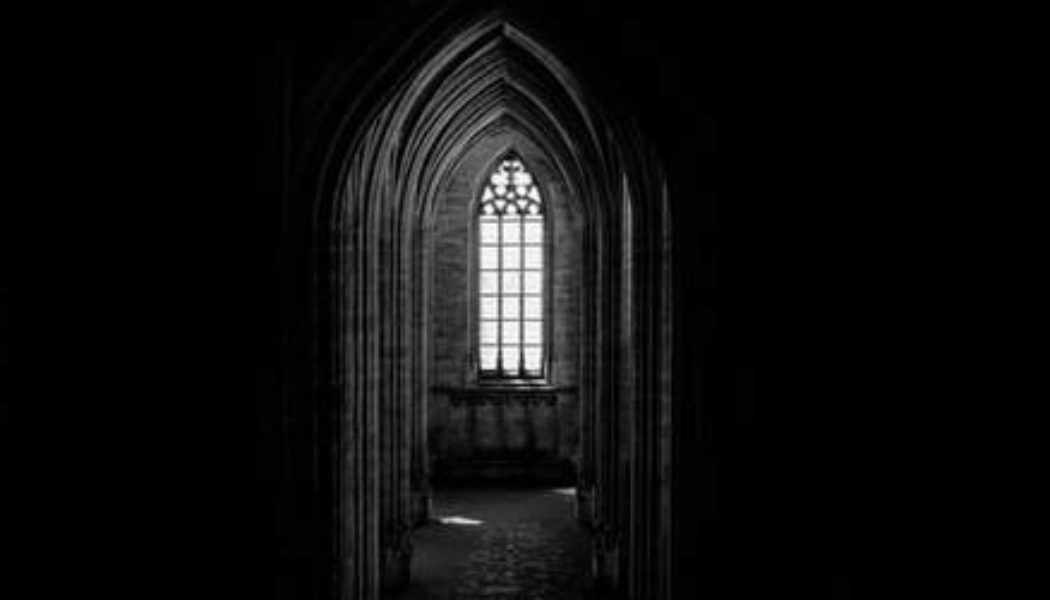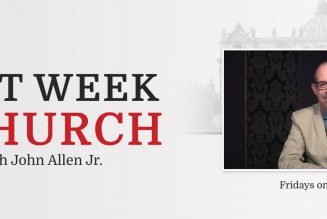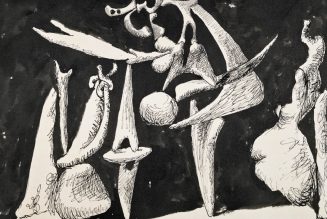In a letter to Betty Hester dated August 28, 1955, Flannery O’Connor wrote: “If you live today you breathe in nihilism. In or out of the Church, it’s the gas you breathe.”1 It was a strange observation to make at a time when the Catholic Church in the United States and Canada was seemingly at the height of its power.2 A decade after the end of the Second World War, seminaries and convents were filled to capacity. Catholic couples were marrying in the Church and raising large families in the suburbs where new parishes were being established and where the majority of Catholics went to Mass on Sundays and Holy Days. Catholic grade schools and high schools were booming and affordable, if not free, and often staffed entirely by consecrated men and women in religious garb. Bing Crosby’s iconic character Father O’Malley stood symbolic of North American Catholicism for both Catholics and non-Catholics alike. The Church was confident, powerful, triumphant, wealthy, and respected. Yet O’Connor smelled trouble.
Sixty-five years later, O’Connor’s prophetic words to Hester about nihilism in the Church have found validation. The clerical sexual abuse scandal and the subsequent cover-up alone offer evidence of a palpable abandonment of God (and a will to power) within the Church. Despite all this, O’Connor never advised leaving the Church: “It seems to be a fact that you have to suffer as much from the Church as for it but if you believe in the divinity of Christ, you have to cherish the world at the same time that you struggle to endure it.”3 O’Connor was right about the gas of nihilism within the Church, but she also offered a plan for the spiritual fumigation of the Church, which, based on the Paschal Mystery, is living and effective.
Orthodoxy or Heterodoxy
It’s no secret that O’Connor was a devout Catholic and that she believed that the dogmas of the Catholic Church brought her freedom both as a human being and as an artist.4 According to O’Connor, what one believes matters, specifically in the arena of theology. She was well aware of the ways in which the Enlightenment affected Protestantism and she often made distinctions between her Catholicism and such movements. Here’s an example from a letter to Alfred Corn:
One of the effects of modern liberal Protestantism has been gradually to turn religion into poetry and therapy, to make truth vaguer and vaguer and more and more relative, to banish intellectual distinctions, to depend on feeling instead of thought, and gradually to come to believe that God has no power, that he cannot communicate with us, cannot reveal himself to us, indeed has not done so, and that religion is our own sweet invention. This seems to be where you find yourself now.
Of course, I am a Catholic and I believe the opposite of all this.5
Throughout her letters, essays, and even testimonies of her friends, O’Connor embraces the dogmas and doctrines of her Catholic faith because she believes them to be true and she thinks that the truth sets people free. One of the best examples of O’Connor’s dogmatic faith comes from an anecdote told by Louise Abbot:
[W]hen I read the collection A Good Man Is Hard to Find, I really couldn’t figure out whose side she was on. And at that time, I was a thorough-going agnostic and had felt that I was going to meet a fellow traveler, and she set me straight right away. And I’m sure that my face was burning, I was so embarrassed.
She set me very straight, reciting the Apostles’ Creed to me. “I believe that,” then recited. She recited the entire Apostles’ Creed, and I was in a rocking chair, and she was in one, but I can tell you, I stopped rocking, and I wanted to slink away.6
O’Connor lived to see the opening of the Second Vatican Council, but she died before its conclusion.7 In theological circles there are two basic approaches to the interpretation of Vatican II: the progressivist Concilium model, and the countercultural Communio model.8 It is impossible to say exactly where O’Connor would stand had she lived past her thirty-ninth year — for she was reading people like Chardin (understood as progressive) and Guardini (understood as traditional) and she liked them both — but my read is that O’Connor would be highly suspicious of any interpretation or implementation of the council that seemed to challenge, rupture, or replace her orthodox faith. Consider the priest characters in “The Enduring Chill” and “The Displaced Person” — Fr. Finn and Fr. Flynn — for evidence of this claim. Neither priest is flashy or theologically hip, but both sit at the bedside of their tiny congregation — Asbury and Mrs. McIntyre — and “explain the doctrines of the Church.”9
In 2012 Dominican theologian Thomas Joseph White wrote, “I am clearly suggesting that the essence of Catholic liberalism is nihilism, and that seems too extreme a claim. But it is in fact an accurate one. There is either meaning or there is not.”10 Keeping in mind what we’ve already noted about O’Connor’s critique of liberal Protestantism, I am suggesting that O’Connor would agree with White, at least on the point that there is either meaning or there is not: God exists, or God does not exist; Christ is God, or he is not God;11 we are sinners and we need a Savior, or we are not sinners and we don’t need saving at all. For O’Connor, orthodox Christianity and nihilism were incompatible, but like White, she thought that liberalism led eventually to nihilism, to meaninglessness. So orthodoxy is important, but unfortunately, it alone doesn’t prevent the fumes of nihilism from polluting the Church.
The Perennial Problem
Although it is true that some of O’Connor’s most memorable fictional characters are those who embrace atheism or nihilism, like Sheppard from “The Lame Shall Enter First” or Hulga-Joy from “Good Country People,” it is also true that many of O’Connor’s characters who think themselves to be good Christian people — that is, believing with orthodox faith — turn out to be like many of the Pharisees whom Jesus denounced in the Gospels.12
For example, the Grandmother in “A Good Man Is Hard to Find” and Mrs. Turpin in “Revelation” both profess true Christian faith and both think of themselves as good Christian women, yet both women are far from being saints, and their actions make the reader wonder about the authenticity of their belief. At one point in “A Good Man in Hard to Find” the Grandmother doubts a central dogma of Christian faith, mumbling, “Maybe He didn’t rise from the dead.”13 And just before Mary Grace hurls her book at Mrs. Turpin’s head in “Revelation,” Mrs. Turpin’s words — “When I think who all I could have been besides myself and what all I got, a little of everything, and a good disposition besides, I just feel like shouting, ‘Thank you, Jesus, for making everything the way it is!’ It could have been different”14 — echo the words of the Pharisee from Luke’s Gospel: “O, God, thank you that I am not like the rest of humanity — greedy, dishonest, adulterous — or even like this tax collector. I fast twice a week, and I pay tithes on my whole income.”15
Pope Emeritus Benedict often spoke of the sort of actions manifest in the characters of the Grandmother and Mrs. Turpin as a practical atheism. He explains:
A particularly dangerous phenomenon for faith has arisen in our times: indeed a form of atheism exists which we define, precisely, as “practical,” in which the truths of faith or religious rites are not denied but are merely deemed irrelevant to daily life, detached from life, pointless. So it is that people often believe in God in a superficial manner, and live “as though God did not exist” (etsi Deus non daretur). In the end, however, this way of life proves even more destructive because it leads to indifference to faith and to the question of God.16
The most pressing problem plaguing the Catholic Church today is not a crisis of dogma or doctrine, but a crisis of Christian faith in practice. And by saying this I am in no way saying that dogmas and doctrines are unimportant, for they are most important. Belief in God’s existence, that God is Creator, that Jesus is God, and that He became man, suffered, died, and rose from the dead, and that he sent his Holy Spirit and started a Church and entrusted it his Apostles — these are all foundational truths of Catholic Christianity. O’Connor knew it too, which is why she recited the Apostles’ Creed to her friend Louise Abbot on the porch. But simply stating the Creed was not enough for O’Connor. To quote Jesus, “The scribes and the Pharisees have taken their seat on the chair of Moses. Therefore, do and observe all things whatsoever they tell you, but do not follow their example. For they preach, but they do not practice.”17
O’Connor knew well that professing the Apostles’ Creed was one thing and living her life according to that Creed was another, and that without the second, the first would ring empty. For evidence, look no further than her prayer journal: “I do not know you God because I am in the way. Please help me to push myself aside.”18 And, “Dear God please help me be an artist, please let it lead to you.”19 Throughout her journal (not to mention her letters and eyewitnesses) O’Connor offers ample evidence that she was in relationship with the God in whom she professed belief. Her faith was dynamic, not static, and her life was changing, growing, developing as a human being, as an artist, and as a Christian because of it.
So the nihilism that is present within the Church today isn’t so much like the nihilism of Hulga-Joy or Sheppard; it’s more subtle, like what Benedict XVI calls “practical atheism,” which I argue eventually results in a practical nihilism, which is on display in characters like the Grandmother and Mrs. Turpin, who profess Christian faith, but who really don’t seem to believe it much themselves; they both need that violent moment of grace to wake them from their nihilistic slumber.20
The Remedy
One theory of why Jorge Bergoglio was elected Pope by his brother cardinals back in 2013 was that the Church was in need of a reformer. St. Francis of Assisi was a reformer and Bergoglio took the name “Francis” because he sought to follow the example of the little brother whose radical love for God, the poor, and all creation renewed the Church. In his first Apostolic Letter, The Joy of the Gospel, the Argentinian Pope offers his perspective on our current state of affairs:
The great danger in today’s world, pervaded as it is by consumerism, is the desolation and anguish born of a complacent yet covetous heart, the feverish pursuit of frivolous pleasures, and a blunted conscience. Whenever our interior life becomes caught up in its own interests and concerns, there is no longer room for others, no place for the poor. God’s voice is no longer heard, the quiet joy of his love is no longer felt, and the desire to do good fades. This is a very real danger for believers too. Many fall prey to it, and end up resentful, angry and listless. That is no way to live a dignified and fulfilled life; it is not God’s will for us, nor is it the life in the Spirit which has its source in the heart of the risen Christ. (Italics mine.)21
The most important line in the Pope’s assessment of our situation is that he thinks everyone is affected by it, believers too, which includes “faithful Catholics,” priests, nuns, bishops, cardinals, and the Pope himself. It is as if the Holy Father knows that O’Connor was right — nihilism is the gas you breathe, in or out of the Church. So how does he suggest we combat these deadly fumes? The same way O’Connor does: by daily renewal of friendship with God. Here’s his suggestion:
I invite all Christians, everywhere, at this very moment, to a renewed personal encounter with Jesus Christ, or at least an openness to letting him encounter them; I ask all of you to do this unfailingly each day. No one should think that this invitation is not meant for him or her, since “no one is excluded from the joy brought by the Lord.” (Italics mine.)22
Again, the Pope insists that this call to a daily encounter with the Lord — an actual relationship, a friendship, something dynamic and personal, not static and detached — is for every Christian everywhere, even and especially for those in positions of authority. Sadly, sometimes the only way we get back to this daily encounter is by having our wooden leg stolen, seeing our property burn to the ground, coming down with undulant fever, getting gored by a bull, or experiencing a clerical abuse crisis. Unfortunately, according to O’Connor, our “heads are so hard that almost nothing else will do the work.” 23
<!–
–>
Join Our Telegram Group : Salvation & Prosperity








